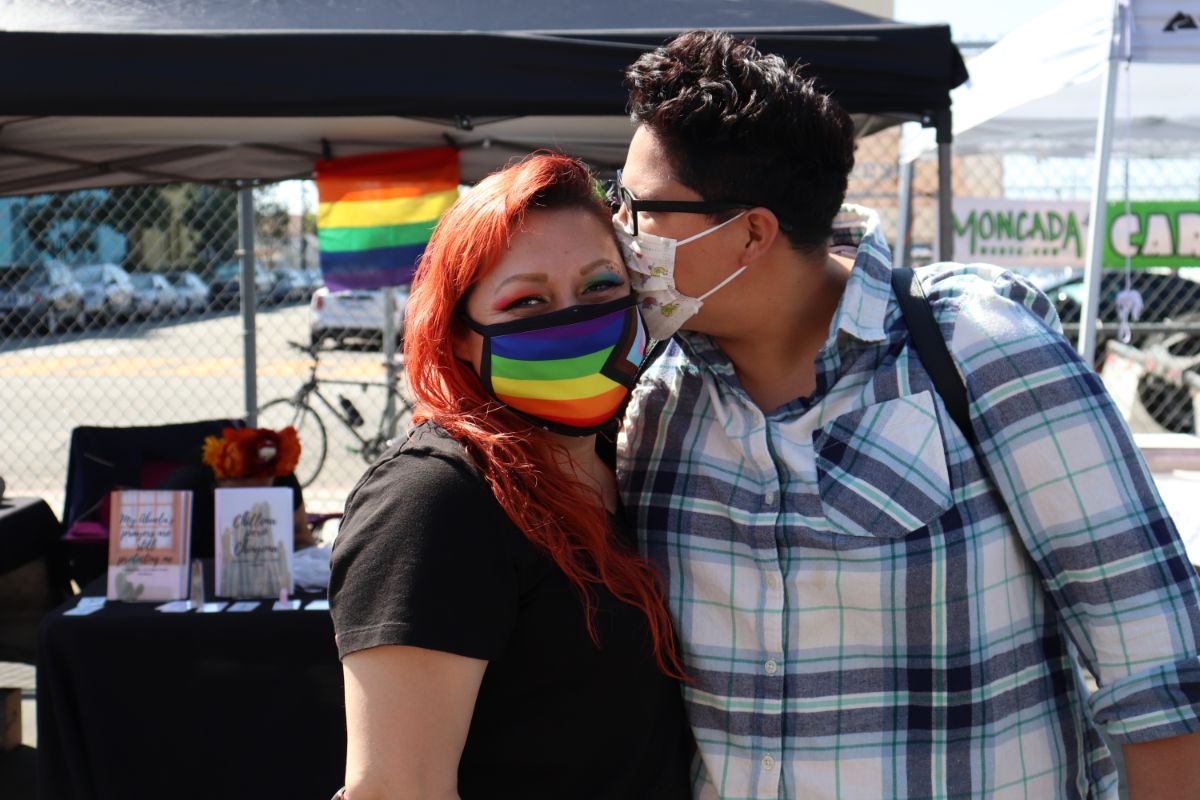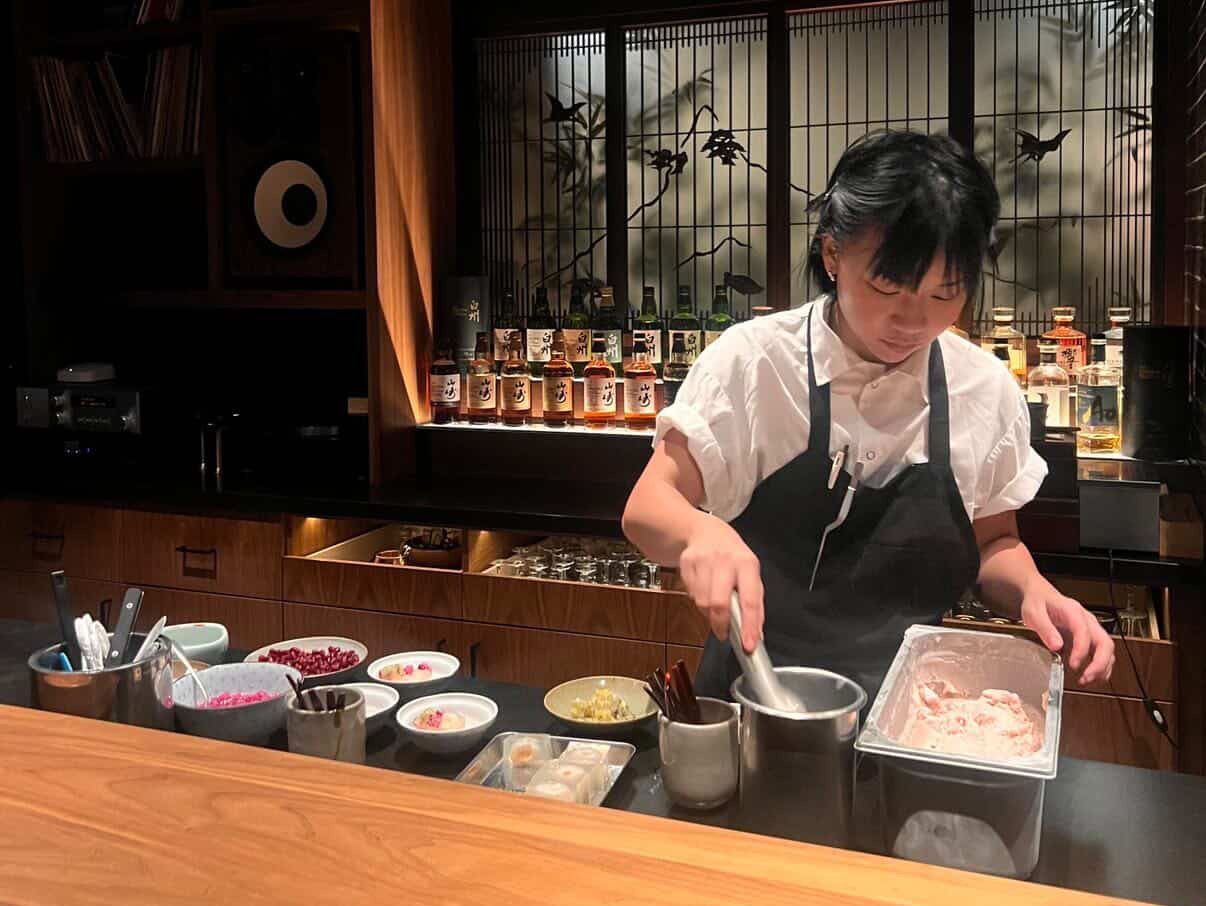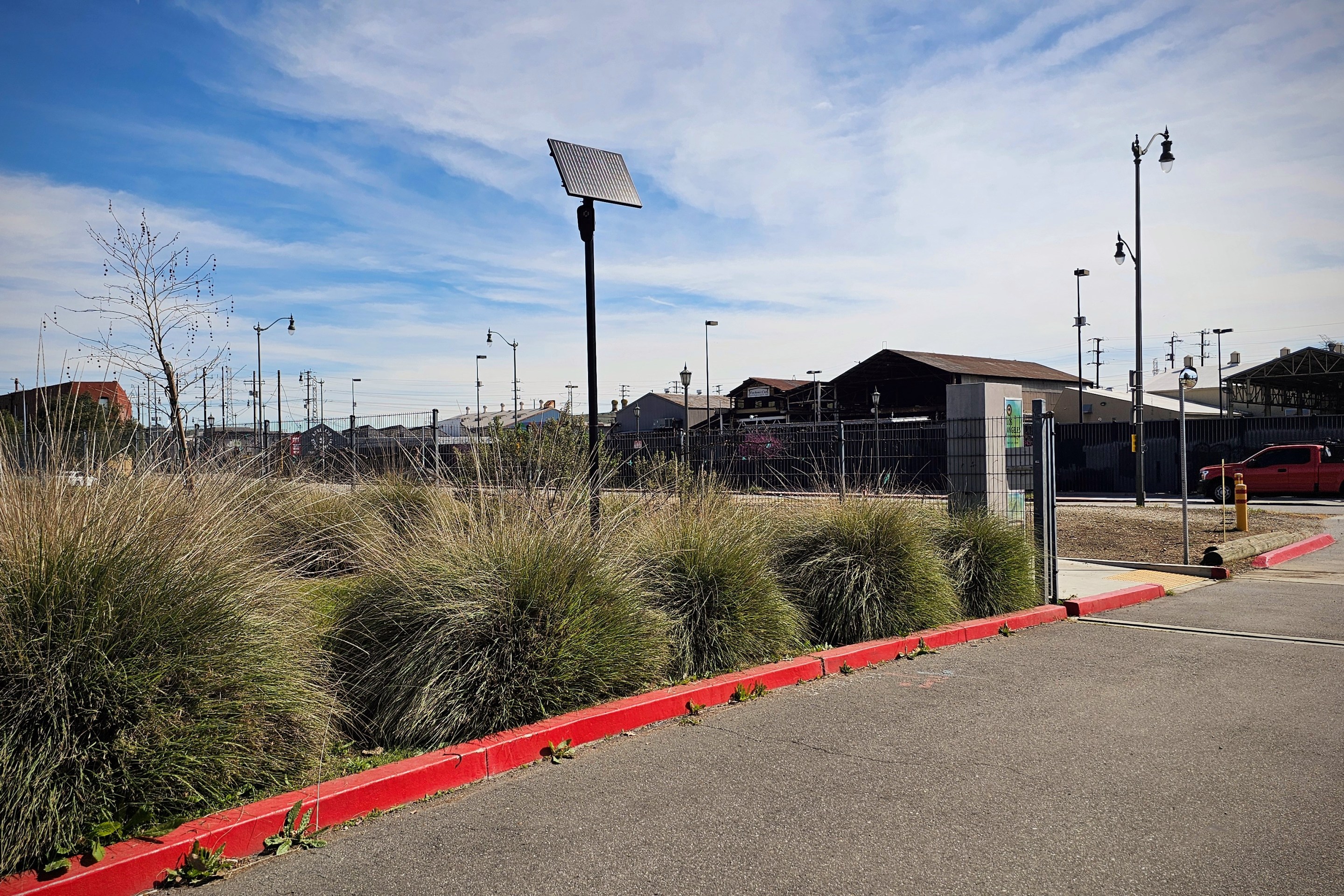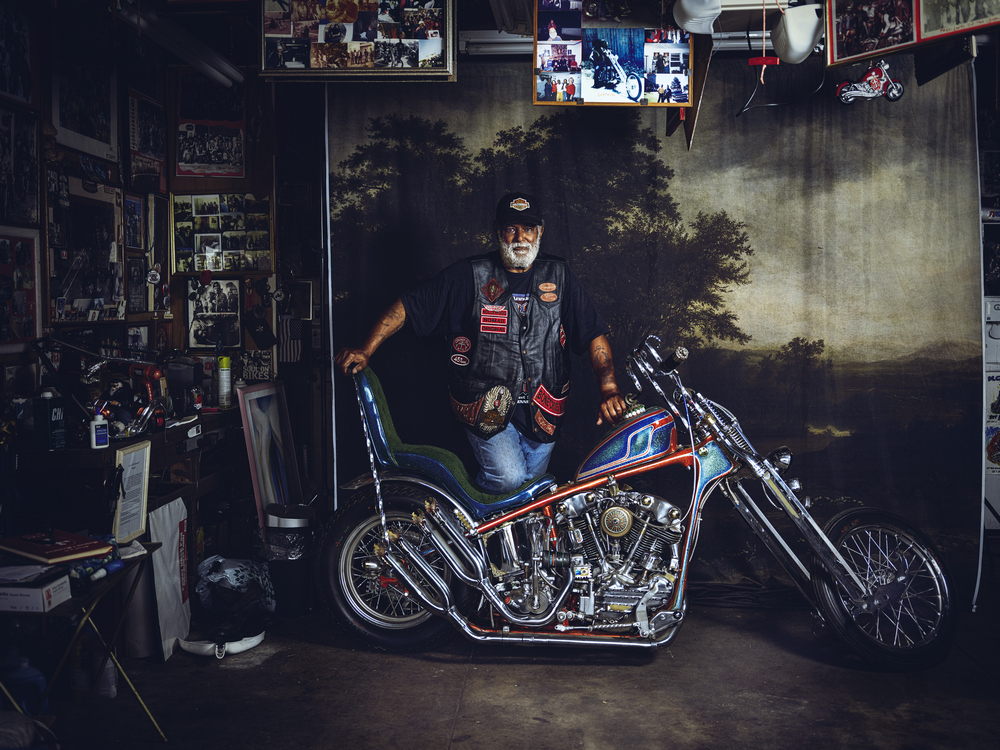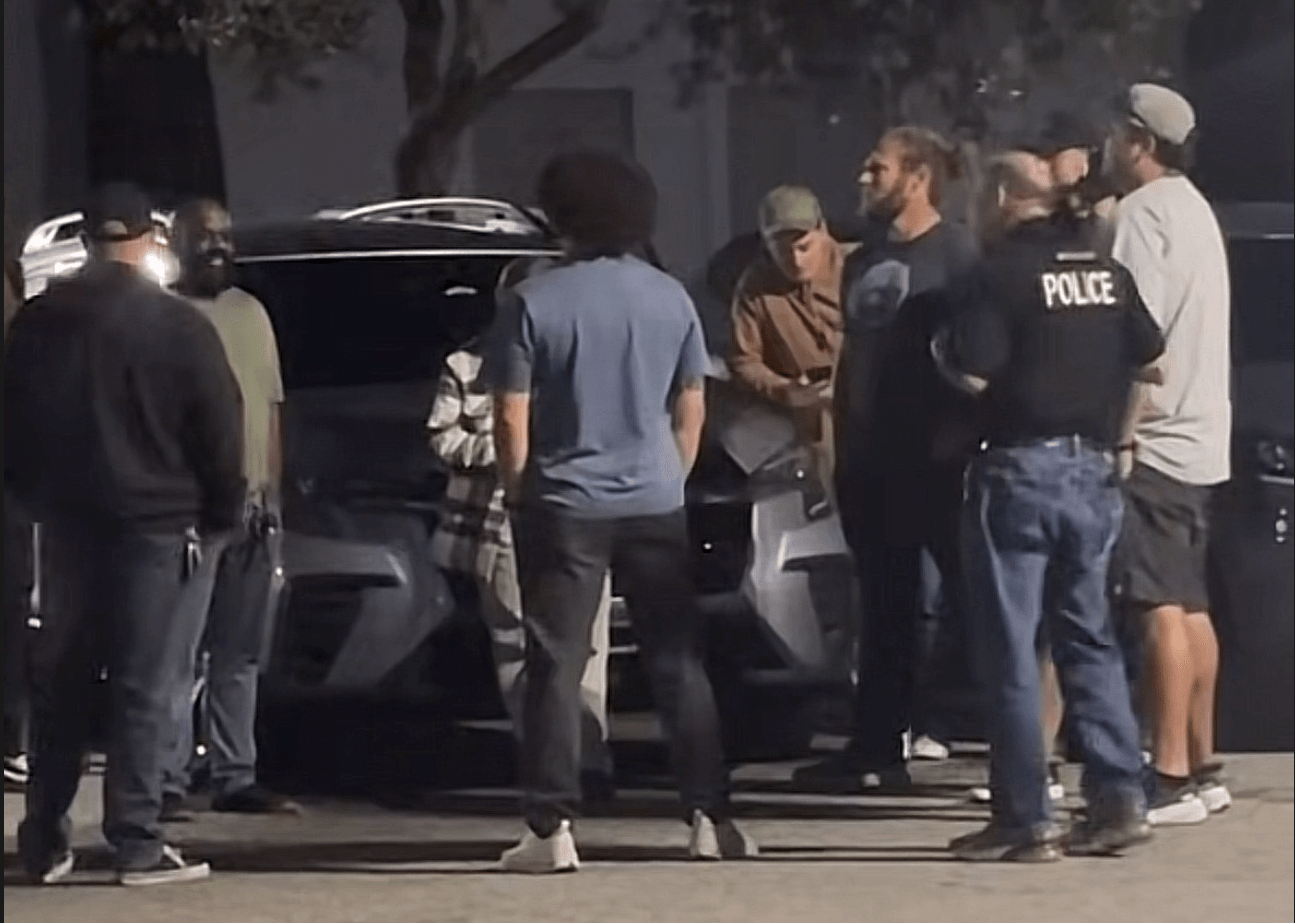[dropcap size=big]T[/dropcap]his past Saturday, over 60 vendors sold their wares in the parking lot across Hilda L. Solis Learning Academy for the third iteration of The Queer Mercado in East Los Angeles. One of the founders, Diana Díaz, a local school counselor, has been part of the street vending community for years. After first creating The Goddess Mercado to support Latina vendors from East L.A., she saw a need and a desire to have LGBTQ vendors centered in a similar way.
That’s when the idea sparked for The Queer Mercado, and Díaz reached out to LGBTQ vendors to organize. A partnership was struck between LAUSD and the organizers of The Queer Mercado. While no entrance fee is required, the suggested donation box collects donated funds and some money from vendors’ fees to the school across the street. Youth paid through a nearby nonprofit, in the making, helped to direct vendors and welcome attendees.
Díaz emphasized that the event is meant to be accessible to uplift and empower rather than exploit local vendors. She intends that the space provides economic opportunity for LGBTQ creators and artists who might face discrimination in other spaces. And in response, the outpouring of support and love from the local community has been overflowing.
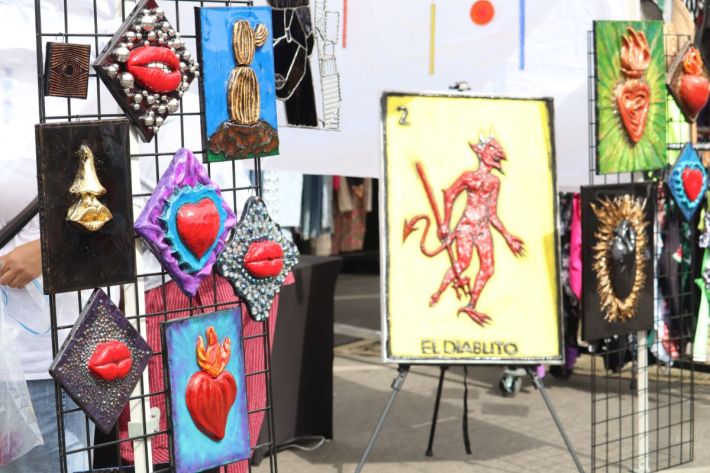
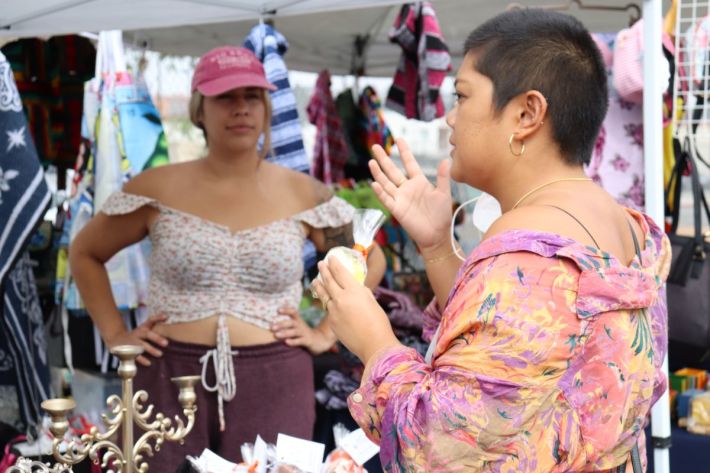
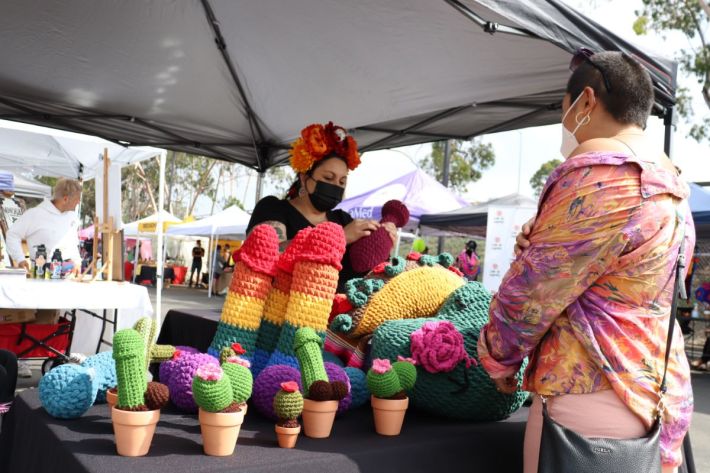
As people walked around the market, live performances by drag queens and musicians played in the background, and many contributed for free. “We had a lot of volunteer drag queens or performers or singers,” said Díaz. “I even try to tip them. They don't want money.”
The familial-like connections and support that Díaz described she said have helped individuals cope with the losses from the pandemic and create positive queer representation for the youth in the local area.
The vendors
Christina Tafoya works as a counselor at Children’s Hospital Los Angeles. She writes “Chingona Affirmations” to uplift her community with positive sayings and creates vibrant crocheted CacTatas and Rainbow Penises in her spare time. Tafoya says the market isn’t like any other in terms of peer mentorship and support.
“[Gaudencio], who promotes the event online through Queer Magic Wednesdays, does only crochet things. At other events, curators usually want only one crochet person. He's not intimidated by the fact that I do something different,” said Tafoya. “They welcome you and everything you bring because if you are queer, we know we need to connect with one another.”
“My goal is to make sure you feel safe,” said Hidalgo.
For many vendors and attendees, the space is a welcome one that is inclusive and aspirational. As many members of the LGBTQ community may face discomfort in finding gender and queer affirming hairstylists, Dominic Hidalgo, the owner of The White Rabbit Parlor, prides himself on running a business that is comfortable for all his clients. The Queer Mercado was their first pop-up event which Hidalgo hopes gains traction into a physical space soon.
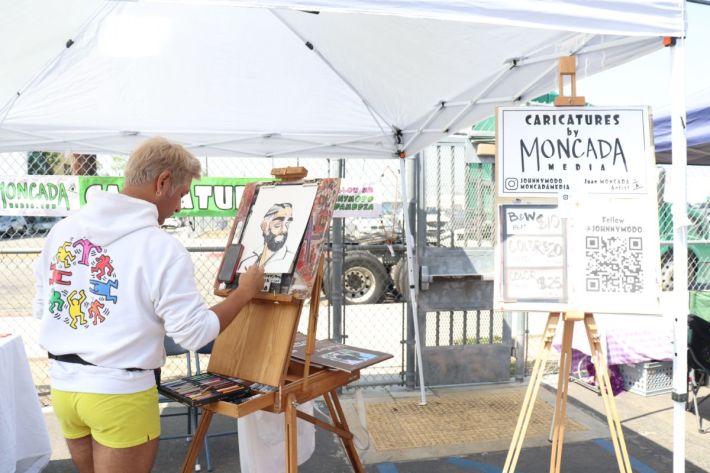
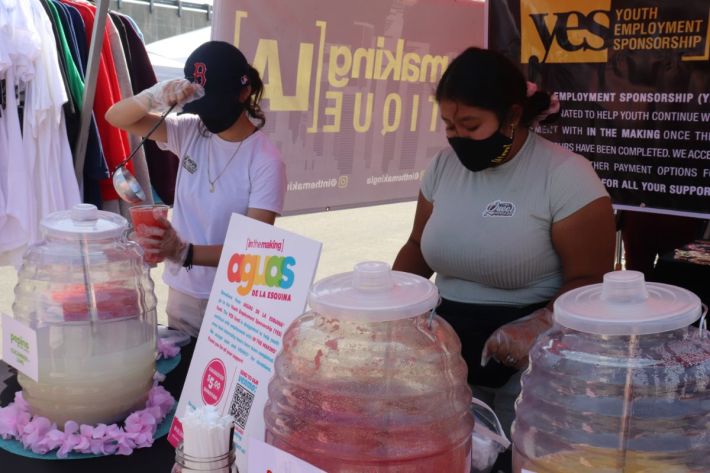
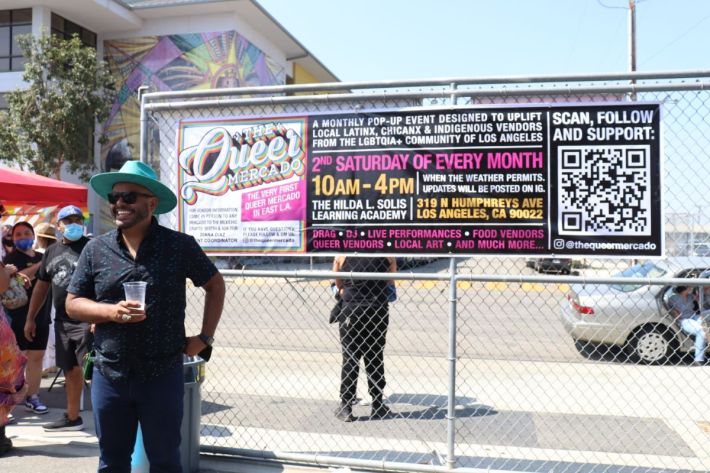
“My goal is to make sure you feel safe,” said Hidalgo. “Barbershops [can be] very machista.”
In public, Hidalgo is cautious about who he shares his story with, but at the Queer Mercado, he said he feels secure to be open and proud about his journey as a trans man who’s worked as a hairstylist for over ten years. Before opening the White Rabbit Parlor, Hidalgo spent seven months working in Seattle teaching trans men how to shave and talk about mental health.
Family members, partners, dogs, and even a unicorn enjoyed the market that day. Jane Lopez and Jimena Jimenez were in attendance, a couple who heard about the event through Instagram. Attending this market was one of their first experiences in East L.A., and Jimenez said it’s new and exciting to find a place that is LGBTQ friendly, where it’s at times, it can be challenging to find inclusive spaces in L.A.
Lopez specifically sought out the vendor Quirky Cipota at this event to purchase El Salvadorian-themed items and said the variety of vendors makes the event unique from other markets.
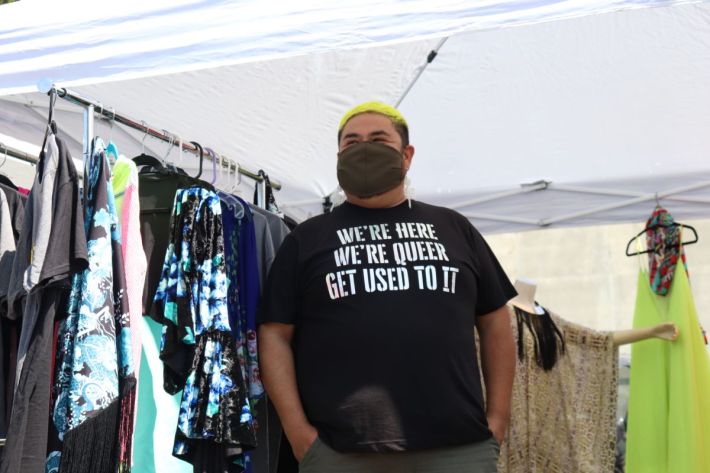
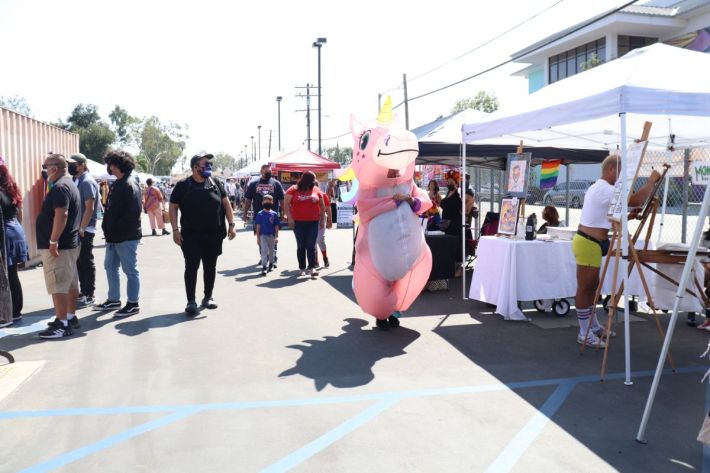
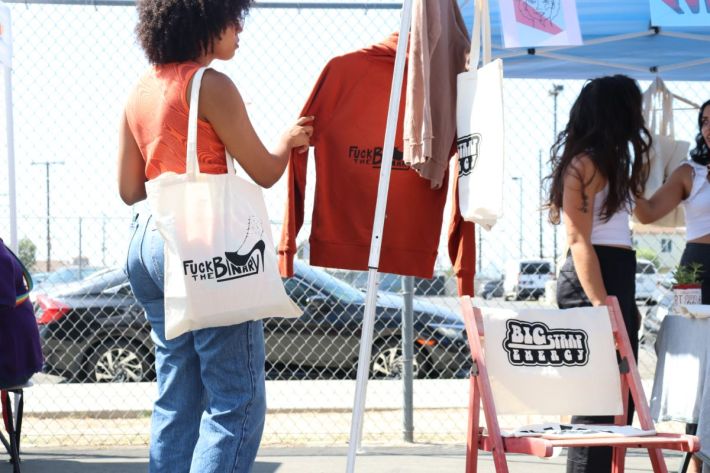
“I love that it's different,” explained Lopez. “A lot of the things that [vendors] sell, [they] make themselves.”
The vendors were also community organizations providing attendees information, resources, ways to volunteer and support the local LGBTQ community.
Bri Ginyard, who tabled that day, is a program associate with Turn Out, a non-profit that connects volunteers to help staff local LGBTQ-related events. Ginyard wishes spaces like these were available to them when they explored their own queer identity as a young person.
“A lot of the queer events that I went through were in the nightlife scene at a very young age, which probably wasn't the safest for me to be in,” said Ginyard. “I really like that [this is] a safe space for especially queer youth and queer folks that are now entrepreneurs. We're thriving, and we’re out here. We’re just like everybody else.”
Jeremy Flores, a resident at UCLA’s psychiatry program, notes many might think of Hollywood as central to L.A.’s gay community, but it hasn’t always been welcoming to people of color.
The intimacy of the event and the organic connections also allow individuals like Daniel Felix to explore self-expression and performance in front of an encouraging audience. Felix, who performs by Maria Juana, is an aspiring drag queen who was the opening act at The Queer Mercado.
“I do have somewhat of a stage fright,” said Felix. “But I just love [The Queer Mercado] because it's a much smaller group. They’re more welcoming.”
While the space is relatively new, it’s already become another landmark in the landscape of L.A.’s diverse LGBTQ community.
Jeremy Flores, a resident at UCLA’s psychiatry program, notes many might think of Hollywood as central to L.A.’s gay community, but it hasn’t always been welcoming to people of color. As Flores pointed out, other queer communities already exist in East LA and Silverlake that need more visibility.
“[Historically] Hollywood is much more of a cis white man kind of space,” said Flores. “So it's nice to see more queer and specifically queer people of color or Latinx spaces.”
Gaudencio Márquez and Ryan Montez are other co-founders of the event. Márquez is hopeful that in the future, The Queer Mercado can be opened to the broader LGBTQ community in L.A. and include vendors from other communities of color.
“[The Queer Mercado] was intended initially for the Latinx queer community,” said Márquez. “But as we're expanding organically, it's creating a stronger intersection of our community. It's beautiful to see that, and we want to be able to continue to build that.”
